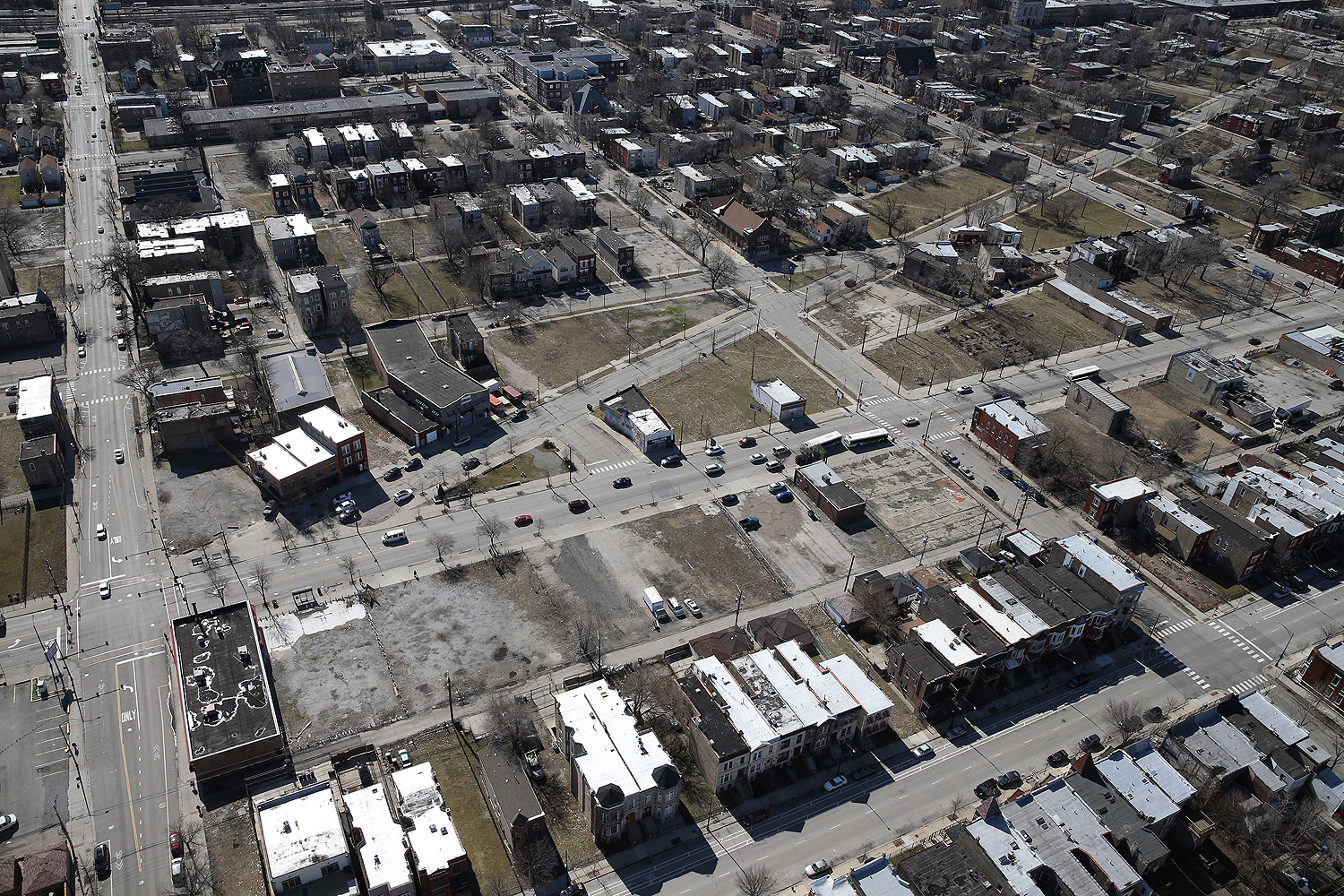This week marks the 50th anniversary of the 1968 Chicago riots following the assassination of Dr. Martin Luther King, Jr. Just two years earlier, King had been actively fighting segregation in Chicago when he moved into a run-down apartment in North Lawndale and led marches in the city to protest segregated housing, most notably the Marquette Park March in August 1966. That brought violence, when King was hit in the head by a rock. His death would bring anger and chaos.
King was shot at approximately 6 p.m. on April 4th 1968, as he stood on the balcony of the Lorraine Motel in Memphis, Tennessee. He was pronounced dead an hour later. Riots broke out in major U.S. cities, including Chicago, after news of King’s death spread.
Over the next several days, looters broke into stores and set buildings on fire, mostly on Chicago’s West side. A two-mile stretch of Madison Street running through East and West Garfield Park was devastated, with more than 100 building destroyed by fires. Looting and fires also broke out in Lawndale and around 63rd Street on the South Side. Fires were dotted across the South Side and the Near North Side. Acting Illinois Gov. Samuel Shapiro activated nearly 7,000 Illinois National Guard troops the day after King’s assassination to support police officers and firefighters in Chicago.
Churches and schools that didn’t shut down held memorial services for King on April 5, remembering his nonviolent protests and called for unity in the city. On April 6, Mayor Richard Daley called President Lyndon Johnson seeking federal troops. “Mr. President, we’re in trouble. We need some help,” Daley told Johnson. “It’s starting to break down in different places. …We need help as soon as we can get it.”
Late in the evening of April 7, 5,000 additional federal troops were ordered into Chicago to support the National Guard and local police. Daley placed Chicago under a citywide curfew for anyone under 21. The city’s downtown neighborhood and nightclub district were totally deserted that Saturday night, according to newspaper reports. Hundreds were left homeless on the West side and thousands in the city were without electricity.
Daley told reporters after the riots that he had ordered police, “to shoot to kill any arsonist or anyone with a Molotov cocktail in his hand… to maim or cripple anyone looting any stores in our city.” Police were originally ordered to use tear gas on looters and rioters instead of shooting, but by Saturday night Chicago police commanders called for “aggressive action” against rioters. Photos of the riots show buildings ablaze and the National Guard patrolling Chicago’s streets with rifles.
By the end of the Chicago riots, at least 9 people were killed and 1,200 injured. Over 200 buildings were destroyed. The destruction had cost nearly $9 million in property damage across the city, according to the Chicago Tribune.
“The human fabric of the city still is being shredded and no one can see the end of it,” wrote D.J.R. Bruckner, a Chicago-based staff writer for the Los Angeles Times, just a week after the riots.
King had warned about such a shredding of the urban fabric almost exactly a year before in his speech “The Other America” at Stanford University on April 14, 1967: “Let me say as I've always said, and I will always continue to say, that riots are socially destructive and self-defeating. I'm still convinced that nonviolence is the most potent weapon available to oppressed people in their struggle for freedom and justice. I feel that violence will only create more social problems than they will solve. …
"But at the same time, it is as necessary for me to be as vigorous in condemning the conditions which cause persons to feel that they must engage in riotous activities as it is for me to condemn riots. I think America must see that riots do not develop out of thin air. Certain conditions continue to exist in our society which must be condemned as vigorously as we condemn riots. But in the final analysis, a riot is the language of the unheard.”
Years later, AREA Chicago asked residents about the legacy of the riots as part of an oral history. "I remember waiting for help but help never came," Diane Gardner told them. "To this day, help never came."



